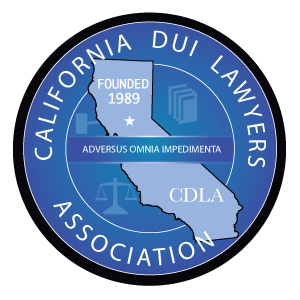California Senate Bill 384 came as a relief to many sex offenders. The bill made changes to the state's sex offender registry laws and impacted the way in which individuals are classified and managed on the registry. Before 1st January 2021, all sex offenders were required to register for life, but SB 384 expanded the type of offenders who can be removed from the registry.
This blog post will provide a guide to removing yourself from the California sex offender registry. We will discuss the criteria for eligibility, the legal process for petitioning the court, and what you can expect during the removal process.
Understanding Megan’s Law
Megan's Law is a federal law named after seven-year-old Megan Kanka, who was raped and murdered by a previously convicted sex offender. The law requires states to establish a registry of individuals convicted of sex offenses and to make that information available to the public.
The purpose of Megan's Law is to protect communities by providing information about sex offenders who live, work, or attend school in the area. The law requires states to notify the public about the presence of sex offenders in their communities, either by publishing their information on a public website or by providing notification to neighbors and other interested parties.
Megan's Law has been enacted in all 50 states, and each state has its own implementation and interpretation of the law. In California, Megan's Law is implemented through the California Sex Offender Registry, which is maintained by the California Department of Justice. The registry is a publicly accessible database that contains information on individuals convicted of certain sex offenses in California.
Under California Megan's Law, individuals convicted of certain sex offenses are required to register with the Department of Justice. The information that must be provided for the registry includes the individual's name, address, photograph, and details about the crime for which they were convicted.
In California, the public can access the sex offender registry through the Department of Justice's website. The registry allows users to search for sex offenders by name, city, zip code, or county and provides information about the individual's crime, physical description, and address.
Eligibility for Removal from the California Sex Offender Registry: Classification Based on Risk
Senate Bill 384 established a new risk-based classification system for sex offenders, which impacts the eligibility criteria for removal from the registry. Individuals who are classified as low risk may be eligible for removal after a certain amount of time has elapsed, while individuals classified as high risk may not be eligible for removal at all. The classification is based on the individual's criminal history and the likelihood of reoffending, as determined by the California Department of Justice.
Low Risk (tier one): Individuals who are classified as low risk are considered to pose a relatively low threat to public safety. They may be eligible for removal from the registry after 10 years, subject to court approval. Examples of charges under this category are:
- Indecent exposure.
- Possession of child pornography.
- Lewd acts with a child under 14 (if the individual has no prior criminal history).
Moderate Risk (tier two): Individuals who are classified as moderate risk are considered to pose a moderate threat to public safety. They may not be eligible for removal from the registry after 20 years. Examples of charges under this category are:
- Rape of an adult (if the individual has a prior criminal history).
- Continuous sexual abuse of a child.
- Sexual battery.
High Risk (tier three): Individuals who are classified as high risk are considered to pose a high threat to public safety. They are generally not eligible for removal from the registry, but there are instances where they can be removed from the registry, as we will discuss later. Examples of charges under this category are:
- Rape of a child.
- Kidnapping with the intent to commit a sexual offense.
- Sexual assault with a weapon.
- Sodomy with force or violence.
Other Key Considerations
You might not be eligible based on the classification of your charges, but the court might also consider these factors:
Completion of Sentence
Individuals must have completed their sentence, including any prison time, parole, or probation before they are eligible to petition for removal from the registry.
Good Behavior
Individuals must have demonstrated good behavior while they were on probation, parole, or serving their sentence. They might also be required to produce a certificate of rehabilitation.
Time Elapsed
A certain amount of time may have to have elapsed since the individual was released from prison, placed on probation, or completed their sentence before they are eligible to petition for removal.
Nature of the Crime
The type of crime for which the individual was convicted may also impact their eligibility for removal. Some crimes, such as violent or serious sexual offenses, may make an individual ineligible for removal from the registry.
The eligibility criteria for removal from the sex offender registry can be complex, and the specifics may vary based on the individual's specific circumstances. Therefore, it is recommended that individuals seeking removal from the registry consult with a knowledgeable attorney who can provide guidance on their eligibility and the legal process for petitioning the court for removal.
Petitioning for Removal
After determining if you are eligible for removal from the CA sex registry, these steps can follow:
- File a petition: You can file a petition for removal from the registry with the California Department of Justice. The petition must be in writing and must include evidence that supports your request for removal, such as evidence of rehabilitation, good conduct, and community ties.
- Attend a hearing: After the Department of Justice receives your petition, it will schedule a hearing to determine whether you should be removed from the registry. The hearing will be conducted by a judge or a hearing officer, and you will have the opportunity to present evidence and testimony in support of your petition.
- Receive a decision: After the hearing, the judge or hearing officer will issue a written decision, either granting or denying your request for removal from the registry. If your petition is granted, your information will be removed from the California Sex Offender Registry and you will no longer be required to register as a sex offender. However, you may still be required to register as a sex offender in other states.
This process can be complex, so you should consider having an experienced attorney to help navigate the process.
Requesting for Exclusion from Internet Disclosure: Megan's Law Exclusion Form
A Megan's Law Exclusion Form, also known as a Request for Relief from Duty to Register, is a form that individuals who are required to register as sex offenders under California's Megan's Law can use to request an exemption from the registration requirement.
Under certain circumstances, an individual may be eligible for an exemption from the registration requirement if they can demonstrate that they no longer pose a threat to public safety. The Megan's Law Exclusion Form is used to petition the California Department of Justice for relief from the duty to register as a sex offender.
In order to be eligible for an exemption, you must have completed your sentence, including any probation or parole, and must not be serving any other sentence for a criminal offense. You must also have been classified as a low-risk offender under California's risk-based classification system established by Senate Bill 384.
The Megan's Law Exclusion Form must be completed in its entirety and must be accompanied by supporting documentation, such as evidence of rehabilitation, good conduct, and community ties. The form and supporting documentation will be reviewed by the California Department of Justice, and a hearing may be scheduled to determine whether the individual should be granted an exemption from the registration requirement.
Will Expungement Lead to Automatic Removal from Sex Offender Registry?
Expungement is a legal process that can be used to clear a criminal record. In California, an expungement, under Penal Code 1203.4, can be used to seal or destroy the record of a conviction for a crime.
While an expungement does not completely erase the record of a conviction, it can help to remove many of the negative consequences associated with a criminal record, such as difficulties finding employment or housing. In some cases, an expungement may also result in a reduction of the sentence associated with a crime, such as a reduction of the time required to register as a sex offender.
However, not all sex crimes are eligible for expungement, and even if a sex crime is eligible, you may still be required to register as a sex offender. Additionally, expungement does not relieve an individual of the duty to register as a sex offender if they have been classified as a high-risk offender under California's risk-based classification system established by Senate Bill 384.
If you are considering seeking an expungement of your criminal record, it is recommended that you consult with an attorney who specializes in expungement and criminal record clearing. The attorney can help you determine whether an expungement is appropriate in your case and can guide you through the process.
Consult an Expungement Attorney Near Me
The process of removing oneself from the California Sex Offender Registry can be complex and requires a thorough understanding of the law. The assistance of an experienced attorney can help ensure the process is handled properly and that an individual's rights are protected. If you're located in the Long Beach area, consider reaching out to the Record Expungement Attorney at 424-835-9505. We specialize in record expungement and can help if you are looking to have your sex crime charges expunged or remove yourself from the sex registry.








